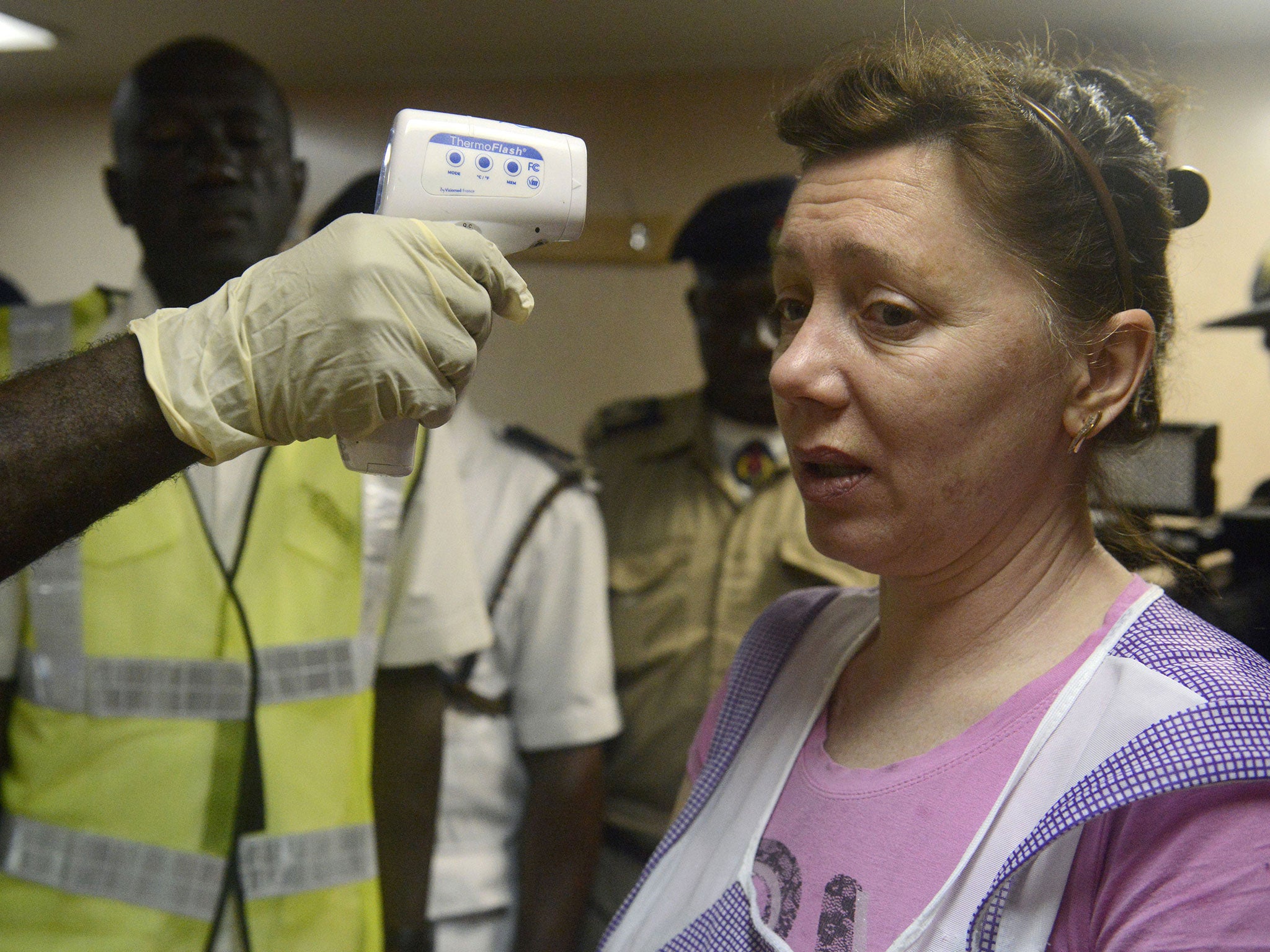Ebola virus outbreak: UK hospitals on standby as David Cameron holds a Cobra meeting
Public Health England has resisted calls to screen travellers for disease

Your support helps us to tell the story
From reproductive rights to climate change to Big Tech, The Independent is on the ground when the story is developing. Whether it's investigating the financials of Elon Musk's pro-Trump PAC or producing our latest documentary, 'The A Word', which shines a light on the American women fighting for reproductive rights, we know how important it is to parse out the facts from the messaging.
At such a critical moment in US history, we need reporters on the ground. Your donation allows us to keep sending journalists to speak to both sides of the story.
The Independent is trusted by Americans across the entire political spectrum. And unlike many other quality news outlets, we choose not to lock Americans out of our reporting and analysis with paywalls. We believe quality journalism should be available to everyone, paid for by those who can afford it.
Your support makes all the difference.Four NHS hospitals are on standby to deal with an Ebola outbreak in the UK as David Cameron prepares to chair a Cobra meeting on how to combat the threat.
The Royal Free Hospital in London, where nurse William Pooley was treated after contracting the disease in Sierra Leone, has sent specialist equipment to hospitals in Liverpool, Newcastle and Sheffield.
The alert issued by Public Health England is urging every doctor in the country to examine the travel history of anyone presenting symptoms of a fever, which is the first stage of Ebola.
Professor Dame Sally Davies, the chief medical officer, said a case similar to the US, where a man with Ebola arrived in the country before his symptoms showed and was initially misdiagnosed, was “unlikely but not impossible”.
“Although the likelihood of imported cases is low, health care providers are reminded to remain vigilant,” she added.
Details of the plans emerged after a nurse in Spain became the first person to be infected outside Africa, through contact with two Spanish missionaries who died of Ebola after being flown back from Liberia and Sierra Leone.
More than 3,400 people have died in the outbreak that started in West Africa earlier this year and the treatment of patients in the US, Britain and other European countries has raised concerns of it spreading.
Barack Obama announced that travellers arriving in the US would be screened for Ebola and Norman Baker, a Home Office minister, called on Britain to do the same.
“We need to consider whether existing controls are adequate,” he told The Independent.
But Public Health England said it has no screening plans, arguing it would affect “huge numbers of low risk people” and emphasised that the UK’s “robust” system for handling infectious diseases was in place for any cases identified.

The UK Border Force, immigration centres, universities and schools have been issued with guidance on how to spot the disease and strict infection controls would be introduced for any suspected Ebola patients.
Dr Brian McCloskey, director of global health at Public Health England, said: “It is important to remember that for Ebola to be transmitted from one person to another contact with blood or other body fluids are needed. As such, if England was to see a case of Ebola this will not result in an outbreak here.”
The Prime Minister is holding a Cobra meeting later today to formulate the national response to the disease.
He spoke to President Ernest Bai Koroma of Sierra Leone on Tuesday, discussing use of the UK’s £125 million aid sent to the country to support 700 treatment beds and medical training.
“The President said the situation continued to be very serious and they were increasing their response, with a need to train more medical staff, have a better system for servicing treatment centres and improve the burial process,” a Downing Street spokesperson said.
“The Prime Minister said the UK would continue to do all it could to support their efforts.”
Join our commenting forum
Join thought-provoking conversations, follow other Independent readers and see their replies
Comments